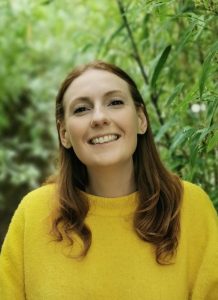 Pathway were recently announced as the first prize winner of the London Homelessness Awards 2022. We asked one of the team members at St George’s Hospital to tell us a bit more about what they do.
Pathway were recently announced as the first prize winner of the London Homelessness Awards 2022. We asked one of the team members at St George’s Hospital to tell us a bit more about what they do.
Hi, and thanks for talking to us. Who are you and what is your role?
I’m Danielle Williams, a GP and Clinical Lead for the Homelessness Inclusion Pathway Team
And who else is in the team at St George’s?
We take a multi-disciplinary team approach (MDT). As well as me there are two nurses – one full time in the hospital and one part time in the community. We also have two housing workers and a care navigator. They are all brilliant!
Where do you get your clients from?
We receive referrals from across the hospital – A&E, wards, outpatients. Anyone in St Georges can be referred to the team if they are rough sleeping or at risk of homelessness.
And what do you aim to do with and for your clients?
Our main aim is to support patients with their health and to prevent early death. We start with a holistic assessment; we look at their health, but not just the reason for admission. We consider any other chronic conditions, engagement with GP, engagement with addiction and mental health services, and look at their housing, benefits, immigration and any other needs. The aim is to pull together all sections so that we can support them during their admission. We want to make sure they are engaged with their health care, and can advocate for themselves, or ask us to do it with them. The idea is to look at the big picture, making every contact count. To do this we liaise with multiple different teams in the hospital and community – housing, alcohol, drug, health to ensure they are linked in with the right services.
What about when they leave hospital?
Our role is to try to help support a safe discharge and ensure our patients have all the right community support in place. We can continue to support in the community for up to six weeks after discharge. We work across many different boroughs and so we are often working with a range of councils to get the discharge right.
Can you give me an example of someone you have worked with?
One patient of the team was a frequent attender after a previous wound from an assault. He was rough sleeping and getting recurrent infections and had had dozens of admissions. We worked with him to help advocate for him to get better secure safe accommodation when he left hospital. We also helped him to engage with his GP, family, and community teams. Since that time, he has been doing really well and has had just one admission.
Another patient of the team was rough sleeping and using heroin. He presented after an injury and required several surgeries. He found it difficult to engage with his medical care initially, missing follow up appointments, not taking his antibiotics and self-discharging. Our team supported him to engage with his medical care and attend his appointments. We liaised with community teams including supporting him to make a homelessness application and were able to advocate to the council to ensure the council placed him in safe suitable accommodation. We supported him to register with a GP and engage with local and drug and alcohol services. He now sees his GP regularly and continues to engage with Hospital medical care and drug and alcohol teams and is no longer taking street drugs. He has been able to reconcile with his family, is back in a happy relationship with his partner and is back in his children’s lives.
Today I have been in A&E and on wards and my colleagues are out in the community helping clients meet appointments go to GPs etc. We often go to community meetings to be the hospital voice and support with housing issues, advice and applications. We also try to be a bridge between primary and secondary health care.
Have things got worse?
Life is tough for many people at the moment but particularly for those experiencing homelessness. We help to bridge the gaps. The MDT approach works well. Patients have often lost trust in the system and need someone to take their side. Yes, sometimes it can be a fight, and it can be tough, but helping people in tough situations is why our team is here.
For more information about the Pathway Team and the London Homelessness Awards go to https://www.pathway.org.uk/about-us/ and https://lhawards.org.uk/